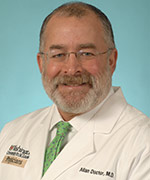Following a four-month rigorous training and selection process involving 46 exceptional applications to the 2015 Bear Cub Challenge at Washington University in St. Louis, grants have been awarded to the top applicants.
The university’s Bear Cub grant program helps researchers make the leap from bench scientists to budding entrepreneurs. The program funds promising translational research – not normally backed by federal grants – that is critical to demonstrating a technology’s commercial potential.
The newest Bear Cub grant recipients are the:
- “Recombinant Hemoglobin Sourcing to Enable Scale-Up for Novel Blood Substitute” team, led by Allan Doctor, MD, professor of pediatrics and associate professor of biochemistry and molecular biophysics at the School of Medicine; and
- “A Fast, Accurate Hearing Test” team, led by Dennis Barbour, MD, PhD, associate professor of biomedical engineering in the School of Engineering & Applied Science.

The Bear Cub program will provide the two projects with up to $75,000 each, as teams work toward their goals of commercial licensing and developing products that will attract investors.
Additionally, five other finalists will be provided with cash and in-kind services valued at up to $150,000.
Providing support to the teams are the Skandalaris Center for Interdisciplinary Innovation and Entrepreneurship; the Center for Research Innovation in Business (CRIB); the Office of Technology Management (OTM); and the BioGenerator.
Among the services provided are: Small Business Innovation Research (SBIR) and Small Business Technology Transfer grant application preparation; help developing business plans and pitch decks to enable private capital investment; and intellectual property assessment as well as due diligence by top national industry and venture capital leaders in respective fields.

“The Bear Cub Challenge reflects Washington University’s commitment to facilitate the practical application of scientific discoveries,” said Provost Holden Thorp, PhD. “All 46 Bear Cub participants have advanced their projects and learned a great deal. Our innovation and entrepreneurship team is looking forward to continuing to mentor current and future applicants to maximize the impact of our university’s outstanding research.”
In past years, Bear Cub grants have funded an array of projects, including the development of a new treatment for pancreatic cancer, a diagnostic test for acute kidney damage, and a photonic switch to help make ultra-high speed Internet access a reality.
To enable broader participation, the Bear Cub Challenge has moved from a yearly cycle to once every four months. Finals for the next cycle of the challenge will take place in September, with educational and training sessions commencing in early May.
Interested individuals are encouraged to contact the Skandalaris Center, the OTM or the CRIB.